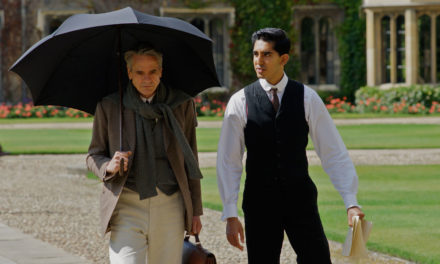Hamilton fans are dreaming of Lin Manuel Miranda’s Moana earning him an Oscar to complete the entertainment grand slam — Emmy, Grammy, Oscar and Tony, or EGOT. Film aficionados are anxiously awaiting the moment Moonlight or La La Land is crowned Best Picture. The 89th Academy Awards ceremony is Feb. 26 and one breathtaking documentary sparked a conversation that will continue whether it wins or not. I Am Not Your Negro is more important than the typical blockbuster because its focus on racial inequality during the Civil Rights Movement is relevant to its contemporary audience.
James Baldwin, a self-identified “witness” of the Civil Rights Movement, was an American author of numerous works on racial inequality, socio-economic class distinctions and sexuality. His unfinished memoir, Remember This House inspired this film by Raoul Peck. The documentary utilizes film clips and still images of real and fictional events to show the audience history through Baldwin’s lens.
An excerpt from the 1927 silent film Uncle Tom’s Cabin is accompanied by Baldwin’s opinion that Uncle Tom was not a hero. Footage from the 2014 protests in Ferguson, Mo., after Michael Brown’s death supports Baldwin’s view that more social progress is needed to achieve racial equality. Actor Samuel L. Jackson narrates quotes from Baldwin’s letters to publishing companies, revealing Baldwin’s research process. Additionally, Peck includes segments of interviews with and speeches by Baldwin so the protagonist’s authentic voice engages the audience. Rather than following a chronological structure, the movie is a visual and auditory rendition of an essay, shifting from one idea to another, like many of Baldwin’s written works.
I Am Not Your Negro is not simply a film about black history, and though it was released Feb. 3, it is not only for Black History Month. Baldwin’s work pertains to broader American history, as explained by Baldwin’s affirmation: “The story of the Negro in America is the story of America.” One of Baldwin’s central arguments was that the injustice black people face is a problem white people and all Americans must acknowledge and work to change. However, he argued that white Americans had not contributed to the movement toward racial justice as much as they should have. The film includes one example of President John F. Kennedy declining requests to accompany Ruby Bridges at an all-white school in New Orleans, La. The activist criticized Kennedy for promoting civil rights without acting to seek social justice. To Baldwin, Kennedy’s support was passive.
Baldwin’s realist perspective differed from the ideologies of Medgar Evers, Martin Luther King Jr. and Malcolm X. In one scene of the film, Baldwin said that he was not as responsible for improving attitudes toward blackness as other outspoken leaders were in the fight for racial equality. Baldwin claimed to be a critic of what he witnessed, as opposed to an organizer like Evers, a preacher like King or a provoker like Malcolm X. Baldwin believed that he was removed from the advocacy of the 1960s, 70s and 80s because he wrote about black struggles rather than marching on D.C. or joining the NAACP.
However, Peck’s portrayal of Baldwin differs from the author’s own self-identification. Peck includes an interview in which Baldwin challenged the views of a white professor from Yale, proving Baldwin was more than a quiet observer. In another example, the profound effect of his bold outrage on his audience is clear in the standing ovation he receives after a speech at Oxford for proclaiming “I am one of the people who built this country.” While Baldwin humbly argued he is not an “actor,” the film’s glimpse of his life reveals that Baldwin had a significant impact on the world.
The rhetoric Baldwin used to express his core messages in I Am Not Your Negro still resonates with modern audiences. In a speech at Oxford, he said, “there are days … when you wonder what your role is in this country and what your future is in it.” This suggests Baldwin’s own conflicts regarding his position in the movement for black liberation and that he questioned whether his country would ever accept him as a black man.
Despite Baldwin’s critiques of how black people are treated in America and his lack of proposed strategies or solutions, he said he was not a pessimist — he was “forced to be an optimist.” Demonstrating the complexity of Baldwin’s perspective, his authentic sense of despair could not be healed with false hope. However, Baldwin chose to educate himself and others, improving his world, even if he did not think he was changing the course of history. I Am Not Your Negro demonstrates that heroism comes in many forms. Though self-critical, Baldwin’s quiet education about civil rights had a monumentally lasting effect on how we view equality today.
Grade: A






